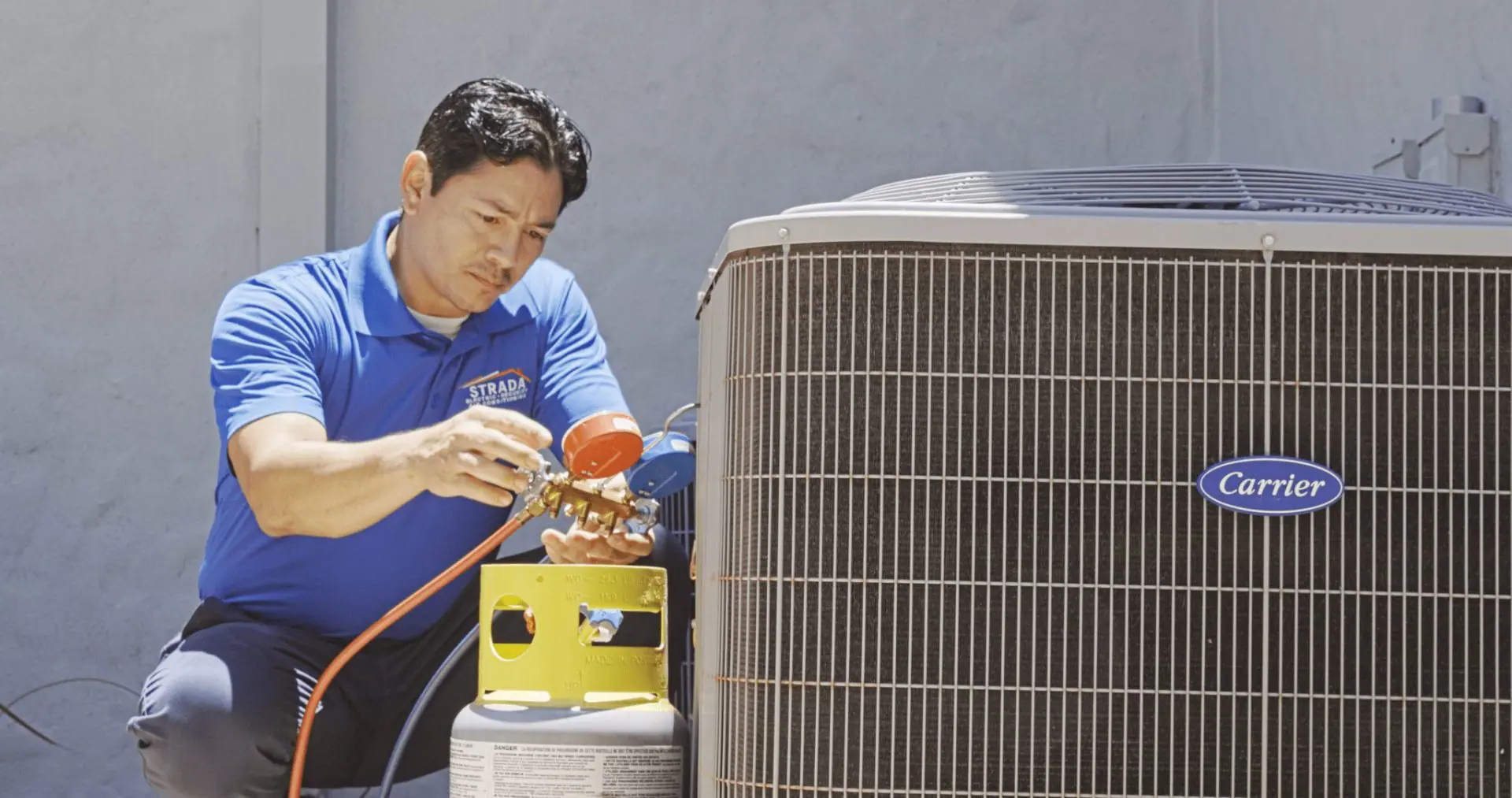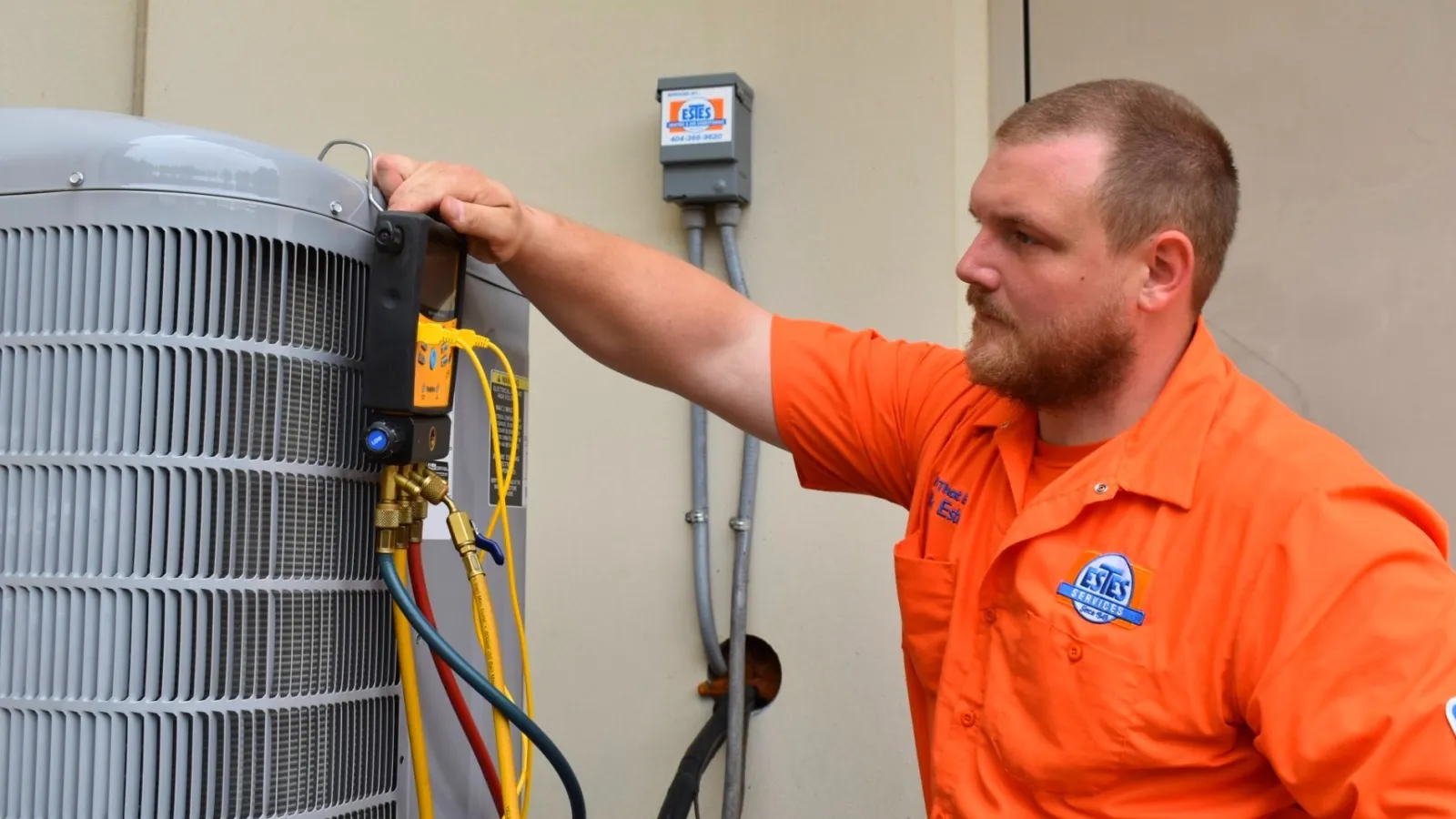Choosing the Right Model for heat pump installation ooltewah tn
Choosing the Right Model for heat pump installation ooltewah tn
Blog Article
Selecting In Between a Warm Pump and Furnace: Key Considerations for Your HVAC Demands
When examining heating alternatives for cooling and heating requires, the choice in between a heatpump and a furnace can be intricate. Each system uses distinct advantages customized to particular environments and energy efficiency objectives. Understanding these distinctions is crucial for making an educated choice. Trick factors such as setup prices and environmental effect additionally complicate the selection process. Which option absolutely lines up with one's convenience and sustainability preferences? The following areas will check out these considerations in information.
Understanding Warmth Pumps: Exactly How They Function and Their Benefits
While lots of property owners consider different home heating alternatives, understanding exactly how heatpump function and their benefits can significantly influence their decision. Heatpump operate by moving heat as opposed to producing it. In the winter months, they remove warmth from the outdoors air or ground and transfer it inside, while in the summertime, they reverse this procedure, cooling down the home by eliminating heat outside. This double capability makes them versatile for year-round climate control.One of the primary benefits of warm pumps is their energy effectiveness. They utilize substantially much less electrical power contrasted to conventional heater, possibly resulting in lower energy costs (ductless mini splits). Furthermore, heatpump have a smaller sized carbon footprint, making them an eco-friendly choice. They additionally call for less upkeep than traditional systems, adding to lasting price savings. Generally, comprehending the auto mechanics and benefits of warm pumps can aid homeowners make informed decisions concerning their home heating and cooling requirements
Checking Out Heaters: Types, Procedure, and Benefits
Furnaces come in various kinds, including gas, electric, and oil versions, each with unique functional devices. Recognizing these differences is important, as they influence performance and home heating performance. Additionally, furnaces offer countless advantages, such as constant warm output and integrity in chillier climates.
Kinds of Heating systems
Furnace can differ significantly in style and operation, with furnaces being a popular choice amongst house owners. There are several kinds of furnaces, each making use of different gas resources and modern technologies. Gas heating systems are typical, leveraging gas to generate warm successfully. Electric heaters, on the other hand, use electric resistance to produce warmth, often preferred for their uncomplicated setup. Oil heating systems, while much less usual, are efficient in locations with limited gas access (heat pump replacement ooltewah tn). Furthermore, condensing furnaces make the most of power efficiency by reusing and catching exhaust gases. Each kind runs with a system of warmth exchangers and ductwork to distribute warm air throughout a home. Understanding the differences in between these furnace kinds is essential for notified heating and cooling choices
Advantages of Heaters
For home owners seeking trustworthy warmth throughout cold months, the advantages of heating systems are substantial. Furnaces offer regular home heating, making sure also temperature levels throughout the home. They are particularly efficient in severe cold, commonly exceeding warm pumps in cold problems. Different types, consisting of gas, electrical, and oil heaters, provide adaptability to fulfill varied demands and preferences.Furnaces additionally have a tendency to have reduced preliminary setup costs compared to heat pumps, making them a more easily accessible alternative for several. Their durable style adds to a much longer life expectancy, with lots of devices lasting over 15 years with appropriate maintenance. In addition, modern furnaces are frequently equipped with innovative modern technology for boosted efficiency, which can result in reduced power costs. Generally, heating systems remain a dependable choice for reliable home heating.

Power Efficiency: Contrasting Heat Pumps and Furnaces
When contrasting energy effectiveness in between warm pumps and furnaces, the Seasonal Power Performance Ratio (SEER) plays an essential duty in establishing efficiency. Furthermore, a functional price analysis exposes the lasting financial implications of each system. Recognizing these elements can guide house owners in making educated decisions regarding their heating services.
Seasonal Energy Performance Ratio
Power performance plays a vital role in the decision-making process between heat pumps and furnaces, specifically when considering the Seasonal Power Effectiveness Proportion (SEER) This metric steps the cooling performance of warm pumps over a whole air conditioning season, giving a standard means to examine performance. Greater SEER scores show greater power performance, converting to lower power usage and lowered energy bills. On the other hand, heating systems are usually assessed using the Yearly Fuel Use Performance (AFUE) ranking, which shows heating performance. When contrasting these 2 systems, house owners ought to focus on SEER rankings for heat pumps, as they straight effect overall power savings and ecological sustainability. A complete understanding of SEER can especially affect the lasting complete satisfaction and cost-effectiveness of the chosen cooling and heating remedy.
Operational Expense Analysis
Recognizing the functional costs connected with heatpump and heating systems is vital for homeowners evaluating their choices. Heat pumps generally use higher power effectiveness, transforming electrical power right into heat with very little waste. This causes lower monthly utility bills, specifically in modest climates. Conversely, typical furnaces, specifically gas designs, may have reduced upfront expenses yet can incur greater functional expenditures gradually because of fuel prices and performance ratings.Moreover, heat pumps can work as both heating and cooling down systems, possibly decreasing the requirement for separate a/c devices. While initial investments for heat pumps may be greater, their lasting cost savings in energy performance can make them a much more cost-effective choice for lots of homes. Careful evaluation of regional power prices is necessary to establish the navigate to this website best choice.
Setup Prices: What to Anticipate for Each Furnace
Installation costs for furnace can differ substantially in between heatpump and heaters, influencing home owners' choices. Warmth pumps generally have greater ahead of time installation costs, usually ranging from $3,500 to $8,000, depending upon the system size and intricacy of installation. This consists of the outside system, indoor handling system, and required ductwork adjustments. Alternatively, heaters often tend to have lower initial costs, balancing in between $2,500 and $6,000, which can be appealing for budget-conscious homeowners. Setup expenses can raise if substantial ductwork is required.Moreover, the option of fuel type for heaters-- natural gas, propane, or electrical-- can likewise influence installment prices. While heat pumps provide power effectiveness, their preliminary financial investment may discourage some customers. Inevitably, assessing setup costs alongside long-term cost savings and effectiveness will aid house owners in making informed decisions about their home heating systems.
Climate Factors To Consider: Which System Does Better in Your Location
How do environment conditions affect the efficiency of heating systems? The efficiency of heatpump and furnaces can vary considerably relying on the regional climate. In moderate environments, warmth pumps stand out by successfully transferring warm from the outside air, making them an energy-saving alternative. Nevertheless, their performance reduces in incredibly cool temperatures, where they may have a hard time to remove adequate warm. On the other hand, heaters, specifically gas models, supply constant and trustworthy warmth despite outdoor conditions, making them preferable in colder regions.In areas that experience milder winter seasons, warm pumps can operate properly year-round, providing both home heating and air conditioning. In contrast, regions with severe winters months commonly gain from the effectiveness of heating systems. Eventually, comprehending the neighborhood environment is crucial when deciding in between a heat pump and a furnace, as it directly affects their functional effectiveness and general performance.
Upkeep Requirements: Long-Term Look After Warm Pumps vs. Furnaces
While both warm pumps and furnaces require normal maintenance to ensure peak performance, their specific needs and care regimens vary significantly. Furnaces normally require less regular attention, with annual examinations sufficing to look for gas leakages, tidy filters, and examine overall functionality. Their less complex style typically enables simple repairs.In comparison, heatpump necessitate biannual upkeep as a result of their dual role in cooling and heating. This consists of cleaning coils, examining refrigerant degrees, and making certain that both the indoor and exterior systems operate at their best. Furthermore, heat pump upkeep frequently entails even more elaborate parts, making professional servicing essential.Neglecting upkeep can lead to decreased efficiency and enhanced power prices for both systems. Eventually, home owners ought to consider these long-term care demands when picking between a heatpump and a heater, as proactive maintenance can prolong the life-span and efficiency of either system considerably.
Environmental Influence: Choosing a Sustainable Heating Choice
The ecological influence of heating systems is an important evaluation for house owners looking for sustainable options. Heatpump are generally more energy-efficient than typical furnaces, as they transfer heat as opposed to create it, substantially reducing carbon emissions. By utilizing sustainable power resources, such as air-source or geothermal heatpump, homeowners can further reduce their environmental footprint.On the other hand, gas heaters give off greenhouse gases and contribute to air pollution, though they frequently supply higher heat result. However, advancements in technology have actually brought about the growth of high-efficiency heaters that reduce emissions.Ultimately, selecting a heating unit includes weighing performance versus ecological effect. House owners are encouraged to review regional power sources and incentives for eco-friendly systems, ensuring a choice that straightens with both individual convenience and environmental obligation. The decision influences not just immediate convenience however additionally long-term sustainability and ecological health.
Regularly Asked Concerns
Just How Lengthy Do Warmth Pumps and Furnaces Normally Last?
The life expectancy of heat pumps typically varies from 15 to 20 years, while heating systems can last in between 15 to 30 years. Routine upkeep considerably influences their long life and effectiveness in offering heating solutions.
Can I Utilize a Heatpump in Extremely Cold Climates?
Heatpump can run in exceptionally cold environments, however their performance diminishes as temperatures resource decline. In such problems, additional home heating resources might be required to preserve comfortable interior temperature levels and ensure peak performance.

What Is the Sound Level of Heat Pumps Versus Furnaces?
The sound levels of warmth pumps and heaters like this vary considerably. Typically, heat pumps run even more quietly than standard heating systems, making them preferable for those delicate to appear, while heaters might generate louder operational noises throughout heating cycles.
Are Warmth Pumps Suitable for Both Heating and Cooling?
Warm pumps are certainly appropriate for both heating & cooling (heat pump installation ooltewah tn). They work by transferring warmth, supplying reliable temperature level control year-round, making them a versatile option for house owners seeking an all-in-one a/c service
What Size Home Heating System Do I Need for My Home?
Establishing the suitable dimension heating unit for a home requires evaluating aspects such as square video footage, insulation quality, local environment, and the home's design. Consulting an expert can guarantee an exact evaluation and optimal comfort. Warm pumps typically offer higher power performance, converting electrical energy into warm with very little waste. In moderate environments, heat pumps excel by efficiently transferring warm from the outdoors air, making them an energy-saving option. Conversely, heating systems, specifically gas models, offer dependable and constant warmth no matter of outdoor conditions, making them more suitable in colder regions.In areas that experience milder winter seasons, warm pumps can run effectively year-round, offering both heating and cooling. Warmth pumps are generally much more energy-efficient than conventional heating systems, as they move heat rather than create it, substantially minimizing carbon exhausts. By making use of renewable power sources, such as geothermal or air-source warm pumps, house owners can better lessen their environmental footprint.On the various other hand, all-natural gas heating systems release greenhouse gases and add to air contamination, though they usually give greater heat output.
Report this page